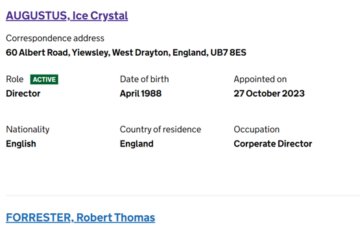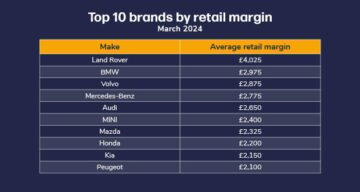Advertisement feature from PIB Risk Management
 Adrian Robinson, Managing Director, PIB Risk Management
Adrian Robinson, Managing Director, PIB Risk Management
Charging points
The speed, battery charge range and battery life of EVs are improving and it is cheaper to charge up as opposed to buying petrol or diesel.
Current charging points arrangements will need to be extended to make the shift to EVs viable. Public charging points can be problematic as multiple types of charging points require different adaptors to use them, which means cost and availability can be unpredictable.
Financial incentives
Grants are available under the Government’s Workplace Charging Scheme to help with the cost of installing electric charging points. A grant cap is set at £350 (inc VAT) per installation for home charging and up to £350 per socket, for up to 40 sockets across all sites, for workplace charging.
Incentives such as the Government’s Plug-In Car Grant (PICG) to buy electric have been substantially curtailed.
Company car drivers benefit from lower Benefit in Kind (BiK) tax, exemption from Ultra-Low Emission Zones (ULEZ) and exemption from congestion charges.
EVs qualify for Enhanced Capital Allowances (ECAs), and the Advisory Electricity Rate for fully electric cars is 5 pence per mile, considerably less than the smallest petrol or diesel engine.
Car tax
Electric cars costing less than £40,000 are currently exempt from annual road tax (Vehicle Excise Duty VED).
This is soon to change after the Chancellor announced in the Autumn Statement 2022 that EVs registered from April 2025 will pay the lowest rate of VED in the first year, then move to the standard rate, currently £165. Those registered from April 2017 will also pay the standard rate.
Insurance
There are many factors to consider when arranging motor insurance, including usage, type of car, age of drivers, and size of fleet.
For further information, please contact Adrian Robinson, Managing Director, PIB Risk Management via Adrian.robinson@pibrm.com or 07753 984433.

- SEO Powered Content & PR Distribution. Get Amplified Today.
- Platoblockchain. Web3 Metaverse Intelligence. Knowledge Amplified. Access Here.
- Source: https://www.am-online.com/news/latest-news/2022/12/16/pib-risk-management-looks-into-the-pros-and-cons-of-going-electric-ad-feature
- 000
- 2017
- 2022
- a
- across
- advisory
- After
- All
- and
- announced
- annual
- April
- Autumn Statement
- availability
- available
- battery
- Battery life
- benefit
- buy
- Buying
- cap
- capital
- car
- cars
- change
- charge
- charges
- charging
- cheaper
- COM
- Cons
- Consider
- contact
- Cost
- Currently
- different
- Director
- drivers
- Electric
- electric cars
- electricity
- emission
- Engine
- enhanced
- exempt
- factors
- Feature
- First
- FLEET
- from
- fully
- further
- going
- grant
- help
- Home
- HTTPS
- improving
- in
- Including
- information
- installing
- insurance
- IT
- Kind
- Life
- LOOKS
- make
- management
- managing
- Managing Director
- many
- means
- Motor
- move
- multiple
- Need
- opposed
- Pay
- plato
- Plato Data Intelligence
- PlatoData
- please
- points
- PROS
- public
- qualify
- range
- Rate
- registered
- require
- Risk
- risk management
- road
- scheme
- set
- shift
- Sites
- Size
- speed
- standard
- Statement
- such
- tax
- The
- to
- types
- under
- unpredictable
- Usage
- use
- VAT
- viable
- which
- will
- Workplace
- year
- zephyrnet
- zones











